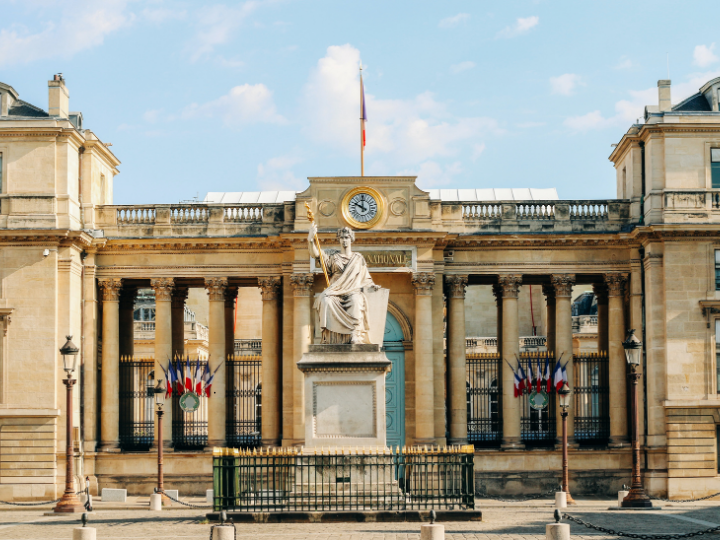by Davide Basso
The leaders of the political parties represented in the French parliament will gather on Wednesday around President Emmanuel Macron, who wants to identify points of political convergence in the context of a relative majority in the French National Assembly.
The president has promised to take “a major political initiative” for the end of the summer to “make a nation” and launch “a cycle of discussions” with the opposition, as he said in Le Figaro Magazine at the beginning of August.
Thus, a working afternoon and a dinner between the president and the parties’ leaders represented in the National Assembly will be held on Wednesday (30 August).
After a turbulent first year in office, the government has not succeeded in forging stable alliances but rather compromises on a case-by-case basis, managing to get around fifty pieces of legislation through parliament.
The radical left (Melenchon’s La France insoumise) and the far right (Le Pen’s Rassemblement National) have finally been invited, although Macron had initially suggested they would be excluded from these discussions.
At this meeting, the political leaders will discuss “the international situation and its consequences for France”, “the effectiveness of public action”, and possible institutional reforms. “Faced with major geopolitical, climatic and technological upheavals […] we must try to act together”, writes Macron in his letter of invitation to the political leaders.
“In view of the content of your policy and the terms of your invitation, we have no illusions about your objectives”, said the leaders of the left-wing coalition parties (NUPES) in a joint statement on Tuesday. While confirming their attendance at the afternoon meeting, they refused to “participate once again in a media show” by staying for dinner.
They said they wanted to put forward “proposals in the interests of the people”, including issues relating to the purchasing power of families at the beginning of the school year, teacher recruitment, electricity and fuel prices, and access to drinking water.
While the president hopes this meeting will result in concrete projects, particularly legislation, he also mentioned the possibility of “referendums” being organised. The political leaders of the NUPES have already indicated that they will call for a referendum on pension reform, although it is unlikely that Macron will agree.
The far-right party Rassemblement National, represented by its president, MEP Jordan Bardella, “will demand that a major referendum on immigration be held on the same day as the European elections”. A similar initiative is expected to be put forward by the President of the Republicains, Eric Ciotti.
Among the subjects that could be put to a referendum is the constitutionalisation of the right to abortion, ratified by the parliament last February.
On Monday, government spokesperson Olivier Veran said the president and the executive were also considering a “preferendum”, i.e. a vote on several issues simultaneously. If this were to happen, it would be the first referendum since the vote on the Treaty establishing a Constitution for Europe in 2005, which the French rejected.
*first published in: Euractiv.com




 By: N. Peter Kramer
By: N. Peter Kramer

